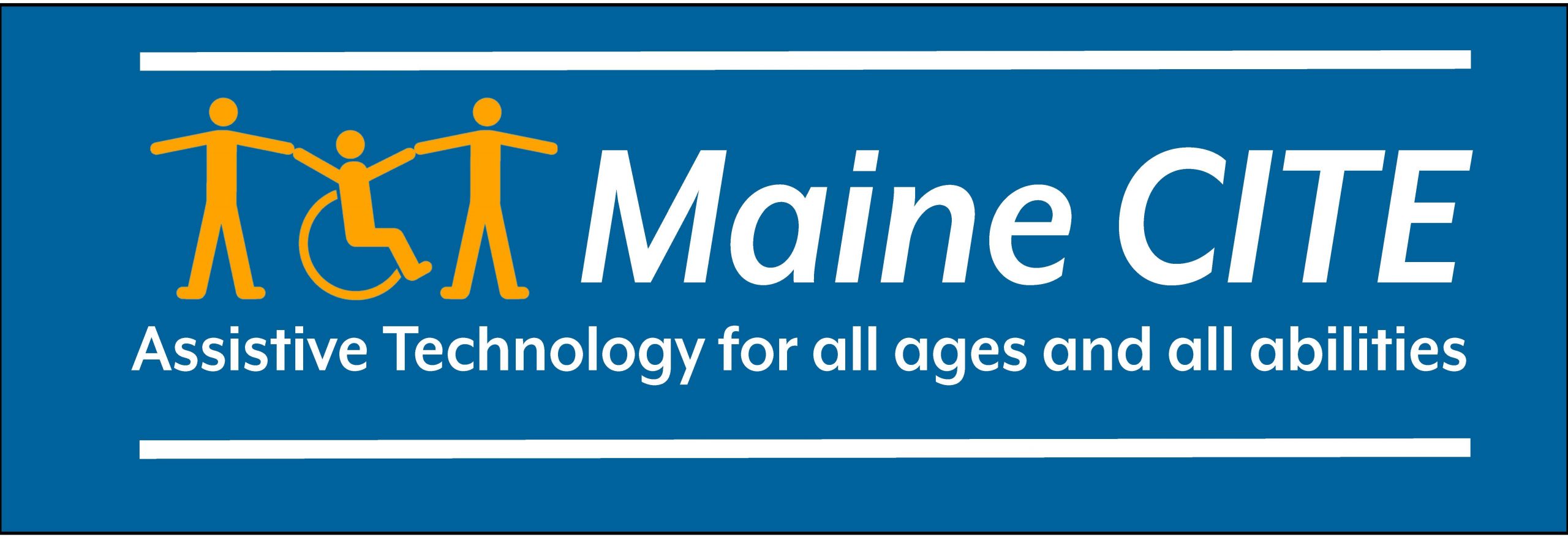Paying for AT
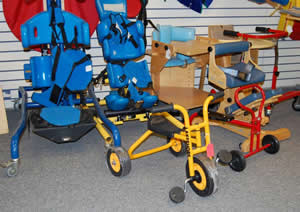 Searching for ways to pay for Assistive Technology (AT)?
Searching for ways to pay for Assistive Technology (AT)?
This page is designed to help you find the financial resources to pay for AT.
Searching for funding is always a difficult task. We recommend that you begin your search by contacting the following key funding sources to determine eligibility:
- Health Insurance programs – private (e.g., CIGNA, Anthem) or public (e.g., Maine CARE, federal Medicare).
- Social Security Administration.
- US Department of Veterans Affairs (VA) – service related disabilities.
- Public Education funds – early intervention and special education (birth to age 21).
- Bureau of Rehabilitation Services (BRS).
- Organizations offering funding, AT services or AT equipment for loan.
- Foundations and organizations offering grants.
- Affordable Financial loans.
- Trusts and ABLE Accounts – funding options where individuals with disabilities (and families) establish and fund financial accounts that can be used to purchase AT.
As you begin your search, please also take a look at our publication, Overview of Funding Assistive Technology for additional guidance and strategies on finding funding for AT.
Health Insurance Programs
Private Health Insurance Policies
You current health insurance policy may pay for part or all of the cost of assistive technology. Check with your carrier or your employer’s human resources department to determine coverage.
Maine CARE
 If you can’t afford to pay for medical care right now, Maine Care can make it possible for you to get the care that you need so that you can get healthy – and stay healthy.
If you can’t afford to pay for medical care right now, Maine Care can make it possible for you to get the care that you need so that you can get healthy – and stay healthy.
Maine Care services require you to be both financially and medically eligible. Maine Care does not pay money to you; instead, it sends payments directly to your health care providers. You may also be asked to pay a part of the cost (co-payment) for some medical services.
Use this link for more information about the Maine CARE program…
Other Maine CARE Information
The following policy sections of Maine CARE may provide funding for AT:
- Section 18 – Home and Community-Based Services for Adults with Brain Injury
- Section 19 – Home and Community Benefits for the Elderly and for Adults with Disabilities
- Section 20 – Home and Community Based Services for Adults with Other Related Conditions
- Section 21 – Home and Community Benefits for Members with Intellectual Disabilities or Autistic Disorder
- Section 29 – Support Services for Adults with Intellectual Disabilities or Autistic Disorder
- Section 60 – Medical Supplies and Durable Medical Equipment
Please also see the following resources regarding Maine CARE funding.
- Maine Home/Community-based Waiver AT Comparison Chart– (revised Feb 2020) -MS-Word
- Maine CARE Policy Manual – See Policy Sections 18, 19, 20, 21, 29 and 60.
- Maine CARE Codes/Rates – Appendix K
Social Security Administration
Supplemental Security Income (SSI) – PASS Program
 The Supplemental Security Income (SSI) program pays benefits to disabled adults and children who have limited income and resources. The Plan to Achieve Self-Support program, or PASS program helps those with disabilities pay for items or services – including AT – needed to achieve a specific employment goal – to work.
The Supplemental Security Income (SSI) program pays benefits to disabled adults and children who have limited income and resources. The Plan to Achieve Self-Support program, or PASS program helps those with disabilities pay for items or services – including AT – needed to achieve a specific employment goal – to work.
Use this link for more information about PASS program of SSI…
Continued Medicaid Eligibility – Section 1619(B)
One of the biggest concerns SSI beneficiaries have about going to work is the possibility of losing Medicaid coverage. Section 1619(b) of the Social Security Act provides some protection for these beneficiaries. If a SSI beneficiary has gross earnings higher than the threshold amount for his/her State, SSA can figure an individual threshold amount if that person has Impairment Related Work Expenses (IRWE).
Under Section 1619(B), Social Security will deduct the cost of certain impairment-related expenses that you need in order to work from your earnings when we decide if you are performing substantial work. Examples of impairment-related expenses are things such as a wheelchairs, certain transportation costs and specialized work-related equipment.
Use this link for more information about Continued Medicaid Eligibility – Section 1619(B)…
Ticket to Work Program
Ticket to Work is a free and voluntary program that can help Social Security beneficiaries go to work, get a good job that may lead to a career, and become financially independent, all while they keep their Medicare or Medicaid. Individuals who receive Social Security benefits because of a disability and are age 18 through 64 probably already qualify for the program.
Use this link for more information about the Ticket to Work Program…
Additional Resources
- US Social Security Administration – “The Red Book – A Guide To Work Incentives”
- “Funding Assistive Technology Through State Medicaid Programs (PDF)” – Special Publication of the National Assistive Technology Advocacy Project – A Project of Neighborhood Legal Services, Inc. –
United States Department of Agriculture – Rural Development Grants
Single Family Housing Repair Loans & Grants in Maine
 Also known as the Section 504 Home Repair program, this provides loans to very-low-income homeowners to repair, improve or modernize their homes or grants to elderly very-low-income homeowners to remove health and safety hazards.
Also known as the Section 504 Home Repair program, this provides loans to very-low-income homeowners to repair, improve or modernize their homes or grants to elderly very-low-income homeowners to remove health and safety hazards.
Use this link for more information about the Single Family Housing Repair Loans & Grants in Maine
United States Department of Veterans Affairs
The following information is adapted from Veterans’ Benefits and Assistive Technology Considering the Possibilities published in 2007 by Diana M. Straube, Neighborhood Legal Services, Inc. Buffalo, NY.
 “The United States Department of Veterans Affairs (VA), (previously known as the Veterans Administration) governs a comprehensive but complicated system of health care. The VA operates over 1400 hospitals, clinics, nursing homes, and various other facilities, where eligible veterans receive care and services. The VA is also a potential funding source for assistive technology (AT) for many veterans.
“The United States Department of Veterans Affairs (VA), (previously known as the Veterans Administration) governs a comprehensive but complicated system of health care. The VA operates over 1400 hospitals, clinics, nursing homes, and various other facilities, where eligible veterans receive care and services. The VA is also a potential funding source for assistive technology (AT) for many veterans.
“With a few exceptions, a veteran must be enrolled in the VA healthcare system in order to receive VA care and services. Upon enrollment, veterans are assigned to a category, which is determined by a number of factors, including but not limited to: the type of discharge the veteran received; whether the veteran has a disability; whether the disability is service-connected, and if so, the percentage of service-connected disability (how the disability is rated as a percentage); whether the veteran has been determined to be unable to defray the costs of necessary care; whether the veteran receives an increased pension; whether service occurred during wartime.”
Benefits for Assistive Technology
The following information was published in 2007 by Diana M. Straube, Neighborhood Legal Services, Inc. Buffalo, NY.
- Medical Benefits Package: Enrolled veterans receiving care for any condition are eligible for the “medical benefits package”, which includes durable medical equipment and prosthetic and orthotic devices.
- Guide Dogs and Equipment for the Blind: Blind veterans entitled to compensation for a service-connected disability may be furnished a trained guide dog and expenses related to travel, lodging and meals where the veteran receives training to use the dog. Mechanical and/or electronic communication equipment necessary to overcome blindness, such as adaptive computers, and computer-assisted devices such as reading machines and electronic travel aids, talking books, tapes and braille literature may also be furnished
- Invalid Lift and Other Type of Therapeutic or Rehabilitative Device: A veteran who is receiving special monthly compensation or increased pension based on need for aid and attendance may be eligible for an invalid lift or any type of therapeutic or rehabilitative device.
- Devices for Assisting in Overcoming a Handicap of Deafness: Devices, including telecaptioning television decoders, may be furnished to any veteran who is profoundly deaf and entitled to compensation on account of a hearing impairment.
- Improvements and Structural Alterations: Improvements and structural alterations may be furnished as home health services only as necessary to assure continuation of treatment for veteran’s disability or to provide access to the home or essential lavatory and sanitary facilities.
- Specially Adapted Housing: Specially adapted housing with special features or movable facilities made necessary by the nature of the veteran’s disability may be furnished to eligible veterans.
- Automobile and Adaptive Equipment: Assistance for providing an automobile and adaptive equipment may be furnished to eligible veterans receiving compensation for a number of enumerated disabilities if the disability is the result of an injury incurred or disease contracted in or aggravated by active service.
Additional Resources
- US Department of Veterans Affairs – Veteran Benefits Administration.
- US Department of Veterans Affairs – Specially Adapted Housing Assistive Technology Grant Program.
- US Department of Veterans Affairs – Blind Rehabilitation Services (BRS).
- US Department of Veterans Affairs – Vocational Rehabilitation and Employment (VR&E).
Public Education Funds
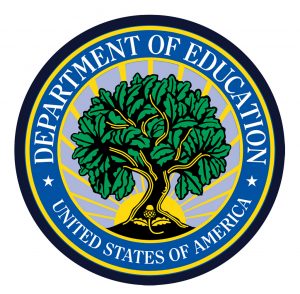 The Maine Department of Education Office of Special Services is responsible for the state’s oversight and support for the delivery of all special education services provided in Maine under the federal Individuals with Disabilities Education Act (IDEA). This includes Early Intervention services to eligible children age birth to under age three and their families, provided under IDEA, Part C, and Free Appropriate Public Education – Special Education to eligible children age three to 20, provided under IDEA, Part B. The Office of Special Services is also responsible for meeting the state’s responsibilities under IDEA.
The Maine Department of Education Office of Special Services is responsible for the state’s oversight and support for the delivery of all special education services provided in Maine under the federal Individuals with Disabilities Education Act (IDEA). This includes Early Intervention services to eligible children age birth to under age three and their families, provided under IDEA, Part C, and Free Appropriate Public Education – Special Education to eligible children age three to 20, provided under IDEA, Part B. The Office of Special Services is also responsible for meeting the state’s responsibilities under IDEA.
Children from Birth to age 20 may be eligible for Special Education Services including AT.
Early Intervention
The Maine Child Development Services (CDS) system provides both early intervention (birth through two years) and Free Appropriate Public Education – Special Education (for ages three through five years) under the supervision of the Maine Department of Education. The CDS system ensures the provision of special education rules, federal and state regulations statewide, through a network of regional sites.
CDS consists of regional sites and a state office. The Maine State CDS office maintains a central data management system, system-wide policies and procedures, and provides centralized fiscal services for regional CDS sites.
Regional CDS sites provide case management and direct instruction for families with children from birth through age five. Each site conducts Child Find, which is the process of identifying children with disabilities. Screenings and evaluations are provided in order to identify children who are eligible for services. Regional CDS sites arrange for local services that include early intervention and special education and related services.
Use this link for more information about Child Development Services (CDS)…
Free Appropriate Public Education – Special Education
The Individuals with Disabilities Education Act (IDEA) is the federal law that governs the delivery of special education to eligible children age birth to 20. IDEA Part B is a federal grant program that provides funds to ensure that eligible students with disabilities receive a free and appropriate public education that includes special education and related services designed to meet their individual needs.
Special education and related services are administered at the local level by the school district. For each child, an Individualized Education Program (IEP) is developed annually by the IEP Team. The Assistive Technology needs of the child must be considered by the IEP Team and documented on IEP annually.
Use this link for more information about Special Education and related services…
Bureau of Rehabilitation Services
 Working with its partners in the Maine Department of Labor’s Career Center and the rehabilitation community, the Bureau of Rehabilitation Services (BRS) works with persons with disabilities through its three primary service areas:
Working with its partners in the Maine Department of Labor’s Career Center and the rehabilitation community, the Bureau of Rehabilitation Services (BRS) works with persons with disabilities through its three primary service areas:
- Division of Vocational Rehabilitation (DVR) – includes Vocational Rehabilitation (VR) and Independent Living Services Program.
- Division for the Blind and Visually Impaired (DBVI) include Vocational Rehabilitation Program for people who are blind or have a visual impairment, Education Program for children who are blind or have a visual impairment, the Business Enterprise Program, and the Independent Living Programs
- Division for the Deaf, Hard of Hearing & Late Deafened (DoD) – includes Programs and Services.
Organizations offering funding, services or equipment loans
 Muscular Dystrophy Association (MDA) – State of Maine Chapter
Muscular Dystrophy Association (MDA) – State of Maine Chapter
Must have a neuromuscular disability, must be registered with MDA.
Muscular Dystrophy Association – national site.
For more information in Maine, contact the local office by phone or email:
Phone: 800-572-1717
E-mail: MDA@mdausa.org
give.IT get.IT
give.IT get.IT is an organization that refurbishes donated computers and provides them at low or no cost to people who need them. The organization formed last year out of a merger between PCs for Maine and eWaste Alternatives, which increased its capacity to recycle retired technology from Maine businesses, refurbish it, and then distribute it to technologically isolated Mainers.
For more information – give.IT get.IT or call 207-338-4233
Computers for the Blind
Computers for the Blind (CFTB) is a non-profit 501(c)(3) organization devoted to providing computers to persons who are blind or visually impaired. They hope that each person who is visually impaired may experience the information age in a positive and productive manner and believe technology opens new worlds and creates opportunity for greater personal freedom.
For more information – Web: Computers for the Blind, Phone: 214-340-6328, Email: info@computersfortheblind.org
Grahamtastic Connection
 Grahamtastic Connection provides free laptops or tablets and internet access to seriously ill children for educational purposes. We concentrate on supporting very ill children who are too sick to leave their hospital room or bed. This enables the child to continue their education, connect with their teachers and classrooms, submit homework assignments, etc.
Grahamtastic Connection provides free laptops or tablets and internet access to seriously ill children for educational purposes. We concentrate on supporting very ill children who are too sick to leave their hospital room or bed. This enables the child to continue their education, connect with their teachers and classrooms, submit homework assignments, etc.
For more information – The Grahamtastic Connection website.
Phone: 207-324-0888 ext. 209
E-mail: grahamtastic@metrocast.net
Telecommunications Equipment Program (TEP) – Disability Rights Maine
 The Telecommunications Equipment Program (TEP) was established by state law to provide ‘No’ or ‘Low’ cost adaptive telecommunications equipment to any Maine resident who cannot use their home’s conventional telephone due to a physical or cognitive disability. The program was established to assist low-income residents, and most clients pay nothing for the phone equipment they need.
The Telecommunications Equipment Program (TEP) was established by state law to provide ‘No’ or ‘Low’ cost adaptive telecommunications equipment to any Maine resident who cannot use their home’s conventional telephone due to a physical or cognitive disability. The program was established to assist low-income residents, and most clients pay nothing for the phone equipment they need.
Through a simple application process, the DRM’s TEP staff will determine which amplified, captioned, or voice-activated telephone and call signaler will meet your needs.
For more information – Telecommunications Equipment Program (TEP) or call 800-639-3884 (V/TTY); 207-797-7656 (V/TTY); 207-766-7111 (VP)
Deaf-Blind Equipment Program
 Individuals with a combined hearing and vision loss may qualify for adaptive equipment for internet, telephone or videophone access through this federally funded program.Equipment that may be received through this program includes, but is not limited to:
Individuals with a combined hearing and vision loss may qualify for adaptive equipment for internet, telephone or videophone access through this federally funded program.Equipment that may be received through this program includes, but is not limited to:
- Laptop or desktop computers
- iPads or other tablets
- Computer software (i.e. screen reader software text zooming software)
- OCR (optical character recognition) devices
- Computer accessories including specialized keyboards, speakers, microphones, and mice
- Braille communicators
- Amplified telephones and cellular phones
For more information – Deaf-Blind Equipment Program or call 800-639-3884 (V/TTY); 207-797-7656 (V/TTY); 207-766-7111 (VP)
Regional Hearing Aid Bank – ReHAB
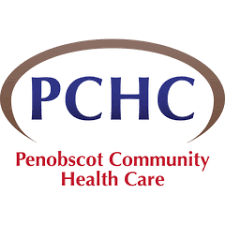 The Regional Hearing Aid Bank – ReHAB is designed to provide one hearing aid to those members of our community who are unable to afford them. It utilizes donated behind-the-ear hearing aids that can be refurbished and reprogrammed for use by another person. The ReHAB program is designed particularly for members of the community who are unable to be served by the Veterans’ Administration, Vocational Rehabilitation program, insurances or other third-party providers and whose annual income is less than 200 percent of the federal poverty level.
The Regional Hearing Aid Bank – ReHAB is designed to provide one hearing aid to those members of our community who are unable to afford them. It utilizes donated behind-the-ear hearing aids that can be refurbished and reprogrammed for use by another person. The ReHAB program is designed particularly for members of the community who are unable to be served by the Veterans’ Administration, Vocational Rehabilitation program, insurances or other third-party providers and whose annual income is less than 200 percent of the federal poverty level.
There is an application process for these services. Applications are available by calling the Penobscot Community Health Care (PCHC) Warren Center at 207-404-8080 or may be picked up at the PCHC/Warren Center office at 992 Union Street, Bangor.
Contact information – PCPH Warren Center for Speech and Hearing
See also the Hearing Industries Association Your Guide to Financial Assistance for Hearing Aids (PDF) for a list of other national resources.
Foundations and organizations offering grants
Travis Roy Foundation – Grant Program
Assistance is awarded to paraplegics or quadriplegics paralyzed due to a spinal cord injury. Applicants must demonstrate financial need. Applicants must reside in the United States.
Eligible items include upgrade and maintenance of wheelchairs, vehicle modifications (i.e., hand controls or lifts), home modifications including ramp and elevator installation, and other adaptive equipment. PLEASE NOTE: Grants are not currently available towards the purchase of new or used vans; funds are available for modifications to existing vehicles.
For more information – Travis Roy Foundation.
DiDonato Paralysis Foundation
 The DiDonato Paralysis Foundation (DPF) is a non-profit 501(c)(3) charitable organization dedicated to funding research into curing spinal cord injuries. Their goal is to also improve the quality of life for individuals living with paralysis and other neurological disorders by way of our Grant Program. Grants will be provided to individuals who need assistance with home modifications or adaptive equipment. Providing the necessary equipment to make local activities accessible.
The DiDonato Paralysis Foundation (DPF) is a non-profit 501(c)(3) charitable organization dedicated to funding research into curing spinal cord injuries. Their goal is to also improve the quality of life for individuals living with paralysis and other neurological disorders by way of our Grant Program. Grants will be provided to individuals who need assistance with home modifications or adaptive equipment. Providing the necessary equipment to make local activities accessible.
For more information – DiDonato Paralysis Foundation.
Maine State Housing Programs
 The Maine Home Repair Network a program of the Maine State Housing Authority, offers help to low-income homeowners who may not be able to afford necessary home repairs and home replacement. If you are eligible, the Maine Home Repair Network may be able to help you with a number of things including handicap accessibility improvements.
The Maine Home Repair Network a program of the Maine State Housing Authority, offers help to low-income homeowners who may not be able to afford necessary home repairs and home replacement. If you are eligible, the Maine Home Repair Network may be able to help you with a number of things including handicap accessibility improvements.
For more information – Maine Home Repair Network.
Maine Housing’s Community Aging in Place Grant Program offers no-cost home safety checks, minor maintenance repairs, and accessibility modifications to eligible low-income elderly and disabled homeowners. These services enable recipients to continue living safely and comfortably at home.
Maine communities with local programs:
| Public Housing Authority | Program Name | Area Covered | Telephone |
| Augusta Housing Authority
33 Union St # 3, |
Community Aging In Place | Augusta, Belgrade, Chelsea, China, Cooper Mills, Farmingdale, Gardiner, Hallowell, Manchester, Monmouth, Mt. Vernon, Pittston, Readfield, Whitefield, Randolph, West Gardiner, Windsor, Winthrop, Vassalboro | Phone: (207) 626-2357 |
| Bath Housing
80 Congress Avenue |
Comfortably Home | Sagadahoc County, Brunswick, Harpswell | Phone: (207) 443-3116 |
| Biddeford Housing Authority
22 South Street |
Healthy Homes 4 Seniors | Biddeford, Arundel, Dayton, Kennebunkport, Lyman, Saco | Phone: (207) 282-6537 |
| Downeast Community Partners
7 VIP Drive, Suite B |
Community Aging In Place | Washington County | Phone: (207) 664-2424 |
| Fort Fairfield Housing Authority
18 Fields Lane |
Home Modification For Seniors | Aroostook County | Phone: (207) 476-5771 |
| Mount Desert Island and Ellsworth Housing Authorities
80 Mount Desert Street |
Comfortably Home | Bar Harbor, Mount Desert, Southwest Harbor, Tremont | Phone:(207) 288-4770 |
| The Housing Authority of the City of Old Town
358 Maine Street |
Comfortably Home | Old Town, Alton, Argyle UT, Bangor, Brewer, Clifton, Eddington, Glenburn, Greenbush, Holden, Hudson, Milford, Orono, Orrington, Veazie | Phone: (207) 827-6151 |
| South Portland Housing Authority
100 Waterman Drive #101 |
Home Modifications For Seniors | South Portland | Phone: (207) 773-4140 |
| Westbrook Housing Authority
30 Liza Harmon Drive |
Comfortably Home | Westbrook, Bar Mills, Buxton, Gorham, Windham | Phone: (207) 854-9779 |
| Western Maine Community Action
20a Church Street |
Community Aging In Place | Franklin County | Phone: (207) 645-3764 |
For more information – Maine Housing’s Community Aging in Place Grant Program
The AccessAble Home Tax Credit is a Maine income tax credit available to individuals who earn $55,000 or less for expenses paid for modifications to their residence to make it accessible for a person with a physical disability or physical hardship who lives or will live at the residence.
For more information on – AccessAble Program
Habitat for Humanity of Greater Portland
 Habitat for Humanity of Greater Portland’s Critical Home Repair service helps low-income homeowners make needed repairs so they can live in a safe, healthy, and affordable home. This program is part of a Habitat for Humanity’s nation-wide effort to serve homeowners who are affected by age, disability or family circumstances and struggle to maintain the integrity of their homes.
Habitat for Humanity of Greater Portland’s Critical Home Repair service helps low-income homeowners make needed repairs so they can live in a safe, healthy, and affordable home. This program is part of a Habitat for Humanity’s nation-wide effort to serve homeowners who are affected by age, disability or family circumstances and struggle to maintain the integrity of their homes.
Habitat for Humanity of Greater Portland recognizes that new home construction is only a part of the solution for quality, affordable housing. The Critical Home Repair program is part of our broader community development strategy to transform and strengthen communities. It not only addresses the health, safety and affordability of the individual residences in neighborhoods, it also strengthens connections within the community and helps preserve affordable housing stock.
How it Works
The Critical Home Repair program requires an affordable payment from the homeowner for a portion of the repair costs. Applicants will be scored and ranked by level of need. Not all applications will be approved. This program serves homeowners in Cumberland County who have a household income below 80% of HUD Area Median Income
Examples of Work to be Done
- Roof leaks
- Accessibility issues, ramps, etc.
- Stair repairs
- Structural work, not to include foundations
Work We Will Not Do
- Mobile or modular homes (except ramps)
- General cosmetic repairs, including but not limited to: flooring, painting, carpentry, etc.
- Window replacement
- Bathroom renovations or repair (only for accessibility)
Contact information – Habitat for Humanity of Greater Portland’s Critical Home Repair
USDA – Single Family Housing Repair Loans & Grants in Maine
What does this program do?
Also known as the Section 504 Home Repair program, this provides loans to very-low-income homeowners to repair, improve or modernize their homes or grants to elderly very-low-income homeowners to remove health and safety hazards.
Who may apply for this program?
To qualify, you must:
- Be the homeowner and occupy the house
- Be unable to obtain affordable credit elsewhere
- Have a family income below 50 percent of the area median income
- For grants, be age 62 or older and not be able to repay a repair loan
For more information about USDA – Single Family Housing Repair Loans & Grants in Maine
Hearing Loss Association of America
 The Hearing Loss Association of America does NOT provide direct funding of assistive technology but does provide a website listing organizations that may provide funding. The website also provides information about other ways to find funding.
The Hearing Loss Association of America does NOT provide direct funding of assistive technology but does provide a website listing organizations that may provide funding. The website also provides information about other ways to find funding.
For more information – Hearing Loss Association of America.
Independent Living Services Program for Maine Citizens with Disabilities
 These federally-funded services offer options and greater self-direction for Maine citizens with disabilities. Areas of attention include: health and self-care; self-advocacy; mobility and accessibility of the home or workplace; recreational pursuits; cognitive problems; communication difficulties; assistive technology and adaptive equipment; and social/behavioral or financial problems.
These federally-funded services offer options and greater self-direction for Maine citizens with disabilities. Areas of attention include: health and self-care; self-advocacy; mobility and accessibility of the home or workplace; recreational pursuits; cognitive problems; communication difficulties; assistive technology and adaptive equipment; and social/behavioral or financial problems.
For more information – ALPHA ONE Independent Living Services
E-mail info@alphaonenow.org
FCC’s Lifeline Program,
The Federal Communicational Commission’s Lifeline Program is a permanent federal program that offers a monthly benefit of up to $9.25 towards phone or internet services for eligible subscribers (up to $34.25 for those living on Tribal/Native lands).
For more information – FCC Lifeline Program
ALSO NOTE: The Emergency Broadband Benefit Program is a COVID-related Federal Communications Commission (FCC) program that provides a temporary discount on monthly broadband bills for qualifying low-income households. This program will continue until funding is depleted.
Kelly Brush Foundation
 The Kelly Brush Foundation (KBF) is dedicated to making active lifestyles a reality for anyone with a spinal cord injury. Life is better active!
The Kelly Brush Foundation (KBF) is dedicated to making active lifestyles a reality for anyone with a spinal cord injury. Life is better active!
Through the Active Fund, KBF provides grants for individuals with paralysis caused by spinal cord injury to purchase adaptive sports equipment. KBF believes in the power of sport and recreation to foster inclusion and overcome the barriers of paralysis. They have helped over 600 people from 47 states purchase handcycles, monoskis, sport chairs, racing chairs, hockey sleds, and much more.
For more information – the Kelly Brush Foundation – Active Fund website.
Robbie Foundation: Helping Children with Special Needs One Child at a Time
 The Robbie Foundation is a 501(c)(3) nonprofit organization dedicated to assisting children with developmental disabilities (including, but not limited to physical disabilities, speech and language delays, sensory integrated disorders, cerebral palsy, brain injury, autism spectrum disorders, mental retardation). The foundation serves children between the ages of birth and 20 years residing in the state of Maine. Their primary mission is to fund adaptive equipment, assistive technology, therapy treatment and/or any necessary item not covered by insurance.
The Robbie Foundation is a 501(c)(3) nonprofit organization dedicated to assisting children with developmental disabilities (including, but not limited to physical disabilities, speech and language delays, sensory integrated disorders, cerebral palsy, brain injury, autism spectrum disorders, mental retardation). The foundation serves children between the ages of birth and 20 years residing in the state of Maine. Their primary mission is to fund adaptive equipment, assistive technology, therapy treatment and/or any necessary item not covered by insurance.
For more information – the Robbie Foundation website.
ACT Today! – Autism Care and Treatment
 ACT Today! grants are designed to provide access to individuals and families affected by Autism Spectrum Disorders. Grant payments will be made directly to pre-approved treatment providers, assessors or materials vendors.
ACT Today! grants are designed to provide access to individuals and families affected by Autism Spectrum Disorders. Grant payments will be made directly to pre-approved treatment providers, assessors or materials vendors.
For more information – visit the ACT Today! website.
Adaptive Equipment Rebate Program – Mobility Resource
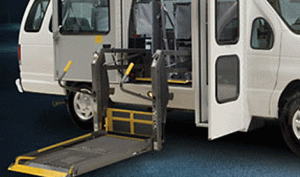 The Mobility Resource provides a comprehensive list of rebate programs offered by vehicle manufacturers including: Acura, DaimierChrysler, Ford, General Motors, Honda, Jaguar, Lexus, Subaru, Toyota, Volkswagen, and Volvo. We hope it will help lighten the financial load when its time to buy a car, adaptive equipment or both. Reimbursements range from $500 to $1000. Please check back often, as rebates can change frequently.
The Mobility Resource provides a comprehensive list of rebate programs offered by vehicle manufacturers including: Acura, DaimierChrysler, Ford, General Motors, Honda, Jaguar, Lexus, Subaru, Toyota, Volkswagen, and Volvo. We hope it will help lighten the financial load when its time to buy a car, adaptive equipment or both. Reimbursements range from $500 to $1000. Please check back often, as rebates can change frequently.
For more information – Adaptive Equipment Rebate Program – Mobility Resource
Special Kids Fund – Wheelchair Van Assistance Program
The Wheelchair Van Assistance Program helps needy families nationwide access handicap vans for their disabled family member. Assistance also for adults and disabled veterans.
For more information – Wheelchair Van Assistance Program
Maine Building Materials Exchange
 The mission of the Maine Housing and Building Materials Exchange (BME) is to: Benefit low-income homeowners and the environment by providing new and re-usable building materials at an affordable price, and by educating people about home repairs.
The mission of the Maine Housing and Building Materials Exchange (BME) is to: Benefit low-income homeowners and the environment by providing new and re-usable building materials at an affordable price, and by educating people about home repairs.
For more information – Maine Housing and Building Materials Exchange (BME)
Caring Resources for Living
Caring Resources for Living (CRL) is a Maine-based foundation whose purpose is to fulfill the vital needs of children with life-threatening medical conditions in a timely, effective and creative way. To ease the burdens of critically ill children and their families through prompt and creative solutions to urgent, unmet needs, and to the maximum extent possible, enable these children to live their lives in dignity and safety.
For more information – Caring Resources for Living (CRL)
Affordable Financial loans
If you decide to borrow money to buy the AT you want.
Kim Wallace Adaptive Equipment Loan Programs
 In Maine, Kim Wallace Adaptive Equipment Loan Programs provides flexible loans for individuals with disabilities, their families and caregivers. The program is administered by Alpha One.
In Maine, Kim Wallace Adaptive Equipment Loan Programs provides flexible loans for individuals with disabilities, their families and caregivers. The program is administered by Alpha One.
Maine business owner can borrow money through the Kim Wallace Adaptive Equipment Loan Business Loan Program to make their workplace more accessible to employees and customers. And the Transportation Assistance Program provides loans for all qualified borrowers to purchase a vehicle for Maine residents with a disability who need a vehicle as part of a qualifying individualized plan toward employment.
For more information – Kim Wallace Adaptive Equipment Loan Programs
Digital Credit Union – Mobility Vehicle and Access Loans
![]() Equipment, Home Modifications, and Vehicles with Devices to Aid People with Disabilities.
Equipment, Home Modifications, and Vehicles with Devices to Aid People with Disabilities.
For more information – Digital Federal Credit Union – Other Loan Products or information on loans for adapted vehicles.
Trusts/ABLE Accounts
Maine Trust for People with Disabilities (MTPD)
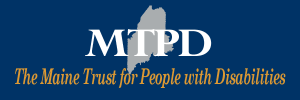 The Maine Trust for People with Disabilities (MTPD) is Maine’s only nonprofit organization that offers parents, relatives and friends a convenient and economical way to establish and fund a special needs trust account for an individual who has a disability and who qualifies for public benefits, such as MaineCare or SSI. In addition, the MTPD offers individuals with disabilities the option to establish and fund their own accounts. The MTPD is a pooled special needs trust established in compliance with federal law.
The Maine Trust for People with Disabilities (MTPD) is Maine’s only nonprofit organization that offers parents, relatives and friends a convenient and economical way to establish and fund a special needs trust account for an individual who has a disability and who qualifies for public benefits, such as MaineCare or SSI. In addition, the MTPD offers individuals with disabilities the option to establish and fund their own accounts. The MTPD is a pooled special needs trust established in compliance with federal law.
These funds can be used to pay for such things as:
- Recreation and Entertainment.
- Training/Education.
- A car.
- Electronic devices – Assistive Technology.
- Appliances – Assistive Technology.
- Medical care and goods not covered by Medicaid.
- Other living expenses not covered by public benefits.
For more information, visit the Maine Trust for People with Disabilities website.
ABLE Accounts – ABLE ME
 ABLE ME opened for business on October 1, 2021 through a partnership between the Office of the Maine State Treasurer, which oversees and maintains the program locally and Bangor Savings Bank.
ABLE ME opened for business on October 1, 2021 through a partnership between the Office of the Maine State Treasurer, which oversees and maintains the program locally and Bangor Savings Bank.
The Maine ABLE Benefit Checking can be opened at any Bangor Savings Bank branch and is available to qualifying Maine residents.
October 1, 2021 – News release on the launch of ABLE ME. the new ABLE Act program in Maine
Background
LD 1421 (HP 967) is a law directing the Treasurer of State to study the most effective options for Maine residents to participate in tax-advantaged savings accounts for persons with disabilities. It passed the House on 2/18/16 and the Senate on 2/23/16. It became law without the Governor LePage’s signature on 3/6/16.
Please visit the Maine State Treasurer’s Office ABLE Maine page for more important information
ABLE Legislation: LD 1421 (HP 967) Resolution
———-
Revised: 1/21/2022
